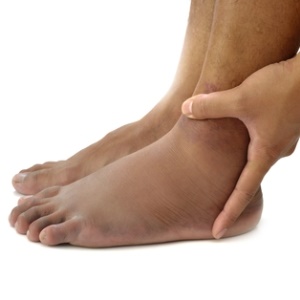
Still new globally and in South Africa is a medicine with virtually no side effects – light – which can heal wounds that don’t respond to conventional treatment. Even better, it can also significantly speed up the healing from pain, injuries, surgery and edema (also called fluid retention). This treatment is called low level light therapy (LLLT) or photobiomodulation.
“People who have diabetes and have lost sensitivity on their feet or hands can really benefit from this treatment. Often, they can’t even feel a shoe rubbing off skin or that they are burning their fingers.
They end up with d that just don’t heal, despite treatment with medications,” says Prof Heidi Abrahamse, Director of the Laser Research Centre (LRC) at the University of Johannesburg (UJ).
Prof Abrahamse does early-stage laboratory research on laser techniques which show promise for medical treatments in future.
Read: Symptoms of diabetes
“We use low-power lasers or light emitting diodes in photobiomodulation. This treatment calms down inflammation, speeds up the formation of new blood vessels and speeds up healing, when applied correctly to wounds and painful areas.
Diabetic wounds can heal many weeks faster when photobiomodulation is used in combination with medications. A small number of medical professionals in South Africa are using this treatment already,” she says.
This treatment ‘boosts’ the human body to get past a key hurdle to healing, adds Dr Nicolette Houreld, a senior researcher at the LRC.
Read: Diagnosing diabetes
“For some difficult-to-heal wounds, it is as if that part of the body is ‘stuck’ in the inflammation phase,” she says. “When we use photobiomodulation, the laser light causes the body to produce far fewer anti-inflammatories and to move along the various phases of healing much faster.”
“People who lost sensitivity in their feet and hands due to diabetes got some of that sensitivity back because of photobiomodulation treatment in a small study we did on 10 people. The study’s results show real promise as a future medical treatment, so we’re doing a follow-up study with more people,” says Dr Houreld.
Read more:
What's your risk for foot problems




 Publications
Publications
 Partners
Partners











